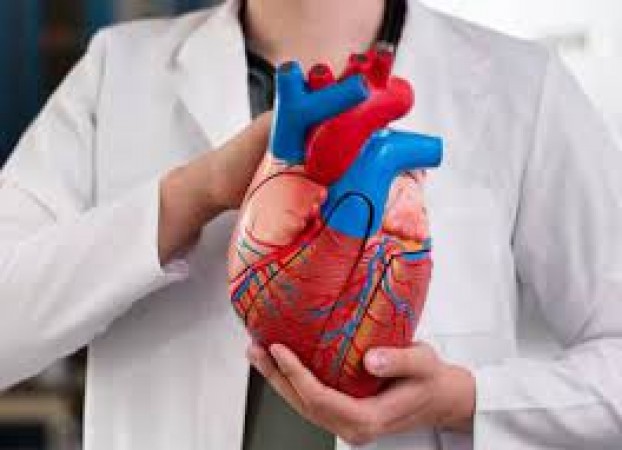
In our fast-paced world, crowded places are a common occurrence. Whether it's a bustling city street, a packed concert venue, or a crowded public transport system, we often find ourselves navigating through throngs of people. But have you ever wondered if these crowded places could impact your risk of experiencing a heart attack? Let's delve into this intriguing topic and explore the facts that may leave you both surprised and concerned.
Before we explore the connection between crowded places and heart attacks, let's first understand what a heart attack is.
A heart attack, also known as a myocardial infarction, occurs when there is a sudden blockage of blood flow to the heart muscle, usually caused by a blood clot. This can lead to damage or death of heart tissue.
There are several well-established risk factors for heart attacks, including:
Crowded places often come with a significant amount of stress. This stress can be a potential trigger for heart attacks, particularly in individuals with pre-existing risk factors.
Psychological stress, such as the stress of navigating through crowded places, can lead to a cascade of physical reactions within the body. The release of stress hormones like cortisol and adrenaline can raise blood pressure, increase heart rate, and cause inflammation. Over time, these responses can contribute to the development of atherosclerosis (narrowing of arteries) and increase the risk of blood clots, both of which are major factors in heart attacks.
In crowded places, physical stress is also a consideration. The demands of navigating through tight spaces, standing for long periods, or dealing with the physical strain of crowds can put additional pressure on the heart, especially in individuals with pre-existing heart conditions.
Crowded places are often associated with poor air quality and pollution, which can have adverse effects on heart health.
Exposure to high levels of air pollution in crowded areas may increase the risk of heart attacks. Fine particulate matter (PM2.5) and other pollutants in the air can enter the bloodstream, promoting inflammation and oxidative stress, which can damage blood vessels and lead to heart problems.
Poor air quality in crowded places can exacerbate respiratory conditions, which can, in turn, affect heart health. Conditions like asthma and chronic obstructive pulmonary disease (COPD) can make it harder for the heart to pump blood efficiently, increasing the risk of a heart attack.
Crowded places can influence various lifestyle factors that can impact heart health.
In crowded urban areas, fast food may be more accessible and tempting due to the convenience of quick, on-the-go meals. These fast food options are often high in unhealthy fats, salt, and sugar. Regular consumption of such foods can contribute to high blood pressure, obesity, and diabetes, all of which increase the risk of heart attacks.
Busy city life often means hasty eating habits. Rushed eating can lead to overeating, poor food choices, and inadequate chewing, which may disrupt the digestion process and affect the heart. Proper digestion is essential for nutrient absorption and overall health.
Crowded spaces can limit opportunities for physical exercise. When sidewalks are packed, and traffic is congested, individuals may be less inclined to engage in physical activities such as walking or cycling. Regular exercise is crucial for a healthy heart, and a sedentary lifestyle can contribute to obesity and heart disease.
Crowded places are often noisy, and noise pollution can have an impact on heart health.
Prolonged exposure to loud noise in crowded places can trigger a stress response that affects heart health. The constant noise can elevate stress hormone levels and disrupt sleep patterns, which are linked to heart problems. Additionally, the stress induced by noise pollution can contribute to unhealthy coping mechanisms, such as overeating or smoking, which are detrimental to heart health. The risk of heart attack in crowded places is influenced by various factors. While the stress, air quality, and lifestyle aspects of crowded environments can contribute to heart health concerns, it's essential to remember that individual susceptibility varies. It's crucial to manage your risk factors, make heart-healthy choices, and seek medical advice when needed. In summary, the relationship between crowded places and heart attack risk is complex, with multiple factors at play. While crowded places may trouble some individuals, it's important to focus on maintaining a healthy lifestyle and managing known risk factors for heart disease. As you navigate through the bustling world, take care of your heart, for it's your constant companion on life's journey.
Dussehra 2023: Dussehra Delights, Healthier Snacks to Savor
World Polio Day 2023: The Date, Historical Relevance, Theme, and More